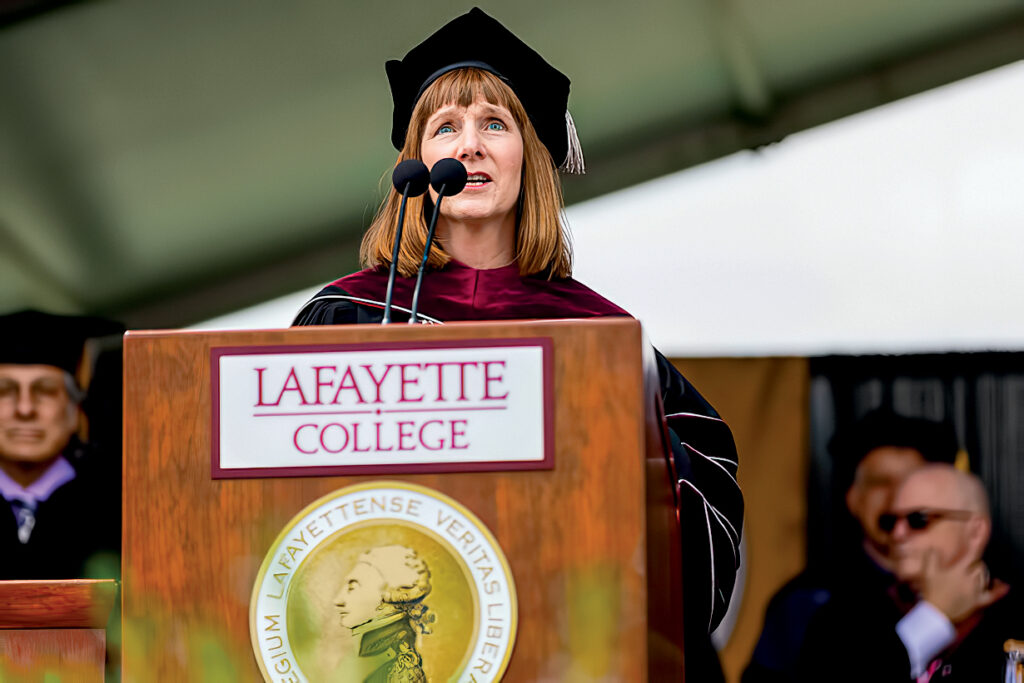A Worthy Investment
What is a Lafayette education worth? There are many ways to answer that question. You probably know that our full cost of attendance this year is $71,225. You may be surprised to learn that the cost per student is actually higher than that. Even if a family is paying the full tuition and fees charged by the College, their student is receiving what I like to call an “invisible scholarship” from the College’s endowment.

Students receiving financial aid from the College are paying even less. We are very proud that the growth in our financial aid resources made possible by our Affordability and Distinction through Growth initiative is increasing access to a Lafayette education for students from a range of socioeconomic backgrounds.
When I think about the value of a Lafayette education, I focus on the benefits it offers students in shaping their intellectual, social, and personal development. The education we offer helps students to grow into engaged thinkers, well-informed citizens, productive workers, and influential leaders. A broad liberal arts education, regardless of specific major, provides rigorous training in how to learn, which prepares students to be active contributors in many different arenas over the course of a lifetime. Lafayette is distinctive within this framework in offering an integrated liberal arts and engineering curriculum that extends student learning even further.
But there is a case to be made for its economic value as well. A recent study from Georgetown University’s Center for Education and the Workforce calculated the lifetime return on investment for 4,500 college and university degrees, looking at initial cost, total debt, and net present value of the investment at 10, 15, 30, and 40 years after graduation. Their analysis demonstrated that liberal arts colleges offered some of the best lifetime returns to their graduates.
Importantly, the study shows that while students with professional undergraduate degrees may start off with higher salaries, the increased benefit of a liberal arts education grows steadily over time. The greater breadth and adaptability of a liberal arts education is advantageous over the long run as workers switch jobs and move into leadership roles.
Not only does the study affirm the value of a liberal arts education, it identifies Lafayette as an exceptional performer in this category. In a separate ranking of 201 selective liberal arts colleges, Lafayette is ranked ninth for 10-year net present value, rising to sixth in the nation at the 40-year mark.
This research confirms what I already know from talking with Lafayette alumni spanning many decades. The value of a Lafayette education does not peak at the moment a president hands you a diploma. It rises over time, becoming more tangible as the years go by. I have had many alumni tell me that as their careers unfolded, they saw more and more evidence of ways in which their Lafayette education influenced their ability to adapt, to advance, and to succeed.
Earning a Lafayette diploma requires an enormous investment of time, energy, and financial resources. But it’s good to know that regardless of whether the stock market goes up or down, the value of your education will rise. That’s a powerful investment.

Alison Byerly